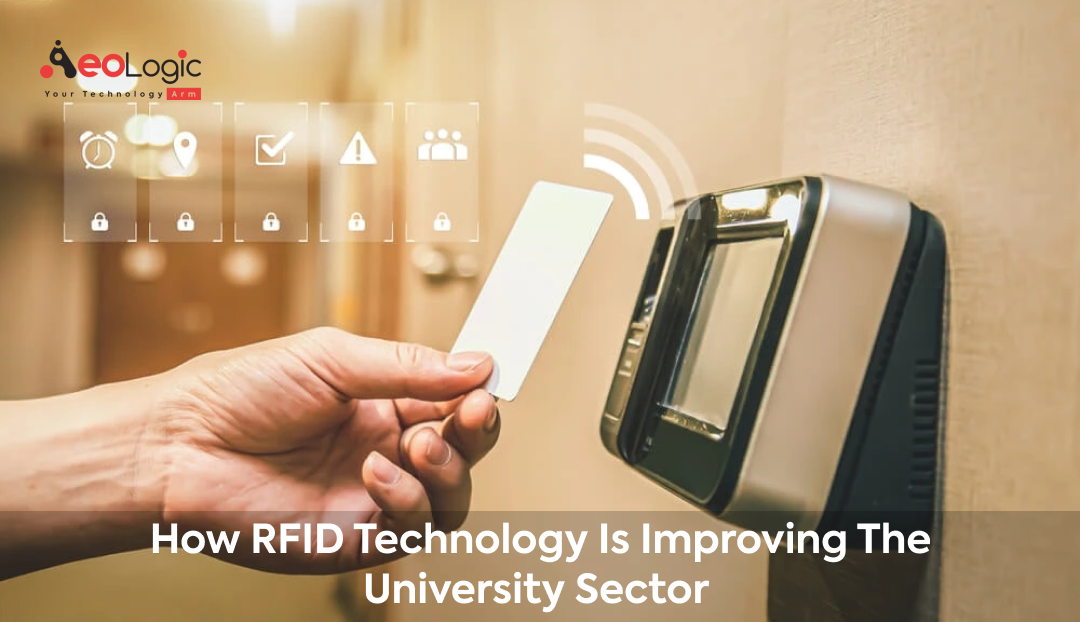Radio Frequency Identification (RFID) technology has transformed how universities manage their operations, security, and student services in the current fast-changing digital world. As a specialist in the field, I’ve therefore witnessed firsthand how RFID technology is revolutionizing higher education. By adopting these innovative applications, universities are not only streamlining their administrative efficiency but also improving student satisfaction. Let’s delve into relevance and analyze how RFID technology brings significant changes.
Benefits of RFID Technology in University Sector
1) Improved security and access control
One of the most important areas in which RFID technology is used in universities relates to security and access control. With RFID technology in university sector, institutions can track access to different facilities making sure that only authorized persons enter areas associated with labs. libraries and dormitories This system also minimizes the risk of intrusion ensuring that both physical and material assets are protected. Also, the RFID technology makes it easier to identify who is coming in and out of campus with a streamlined way of tracking people. This not only improves security but also helps during emergencies, for when there should be a case where people need to evacuate or go into lockdown. In this case, the peace of mind that such technology brings to students and faculty members as well as parents is priceless showing how indispensable it has become in modern colleges and universities.
Also Read: RFID Use for Supply Chain: Benefits, Uses, and Future Trends
2) Streamlined Asset Management
The second benefit of incorporating RFID technology in university sector includes improved asset management. The university environment is a place of many resources such as books that are in the library and costly equipment found in research laboratories. With the use of RFID tags that are coated on these assets, effective inventory management can be achieved straightforwardly by tracking it and monitoring its real-time movement. This function not only saves the time and energy needed in inventory audits but also decreases losses or theft. In addition, it makes the universities benefit through effective utilization of their resources hence availing assets at the right time and location. This efficient management is a manifestation of the possibility that RFID Technology creates in turning university operation flows.
3) Improved Library Management
The main area of university education is libraries and RFID technology currently transforms their running. Libraries can automate their check-in and check-out processes by prefixing books or any material with RFID chips, which makes all the procedures speedy rather than slow. Not only does this enhance the user experience of both students and faculty members, but it also cuts into library staff workload by directing them to more important issues. Furthermore, the application of RFID enables better material tracking and minimizes instances when items go missing or are misplaced. It also promotes self-service departments in which students can borrow and return books without the direct involvement of staff. With the level of automation and efficiency attained by RFID technology, it is evident to point out the major advantages that university libraries can derive.
Also Read: How RFID Tagging Solutions for Ammunition Will Help the Soldiers
4) Efficient Student Services
RFID application in universities also includes improvement of services for the students. With the RFID technology, cashless transactions in university cafeterias and bookstores as well as smart attendance systems applied in college classrooms are evidence that makes campus life more convenient while secure. The RFID-enabled identity card helps students manage their everyday life on campus. This incorporation of technology into student services not only promotes the smooth running of campus operations but also enriches students’ lives. With the use of RFID technology that reduces wait times and eliminates the need for physical cash, hence we have a more connected campus. Thus, this convenience is an evident sign of how RFID technology positively impacts the university industry.
5) Efficient Student Services
RFID application in universities also includes improvement of services for the students. With the RFID technology, cashless transactions in university cafeterias and bookstores as well as smart attendance systems applied in college classrooms are evidence that makes campus life more convenient while secure. The RFID-enabled identity card helps students manage their everyday life on campus. This incorporation of technology into student services not only promotes the smooth running of campus operations but also enriches students’ lives. With the use of RFID technology that reduces wait times and eliminates the need for physical cash, hence we have a more connected campus. Thus, this convenience is an evident sign of how RFID technology positively impacts the university industry.
Also Read: Importance of Data Analytics in Learning and Development
Conclusion
The RFID technology in university sector is more than just a fad; it’s changing everything. With optimized security, simplified asset management, modern library functioning, good student services, and an environment protection plan RFID sets new bars for efficacy in higher education. Looking ahead into the future, it becomes apparent that among all options to enhance university systems with the help of RFID integration is one playing a key role in shaping tomorrow’s world universities. The numerous advantages the RFID technology possesses make it a core of contemporary academic campuses that are characterized by dynamic and sustainable utilization.

I’m Deepika Pandey, an SEO strategist and content writer with 6+ years of experience. I create SEO-friendly content that drives traffic and engages readers. I combine data insights with creativity to help businesses grow their online presence effectively.







